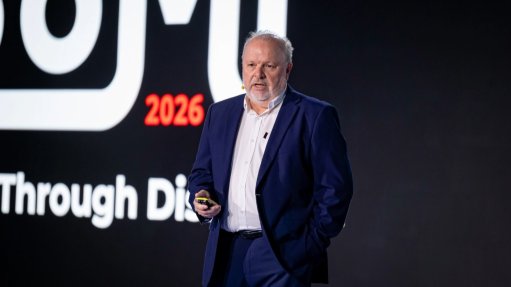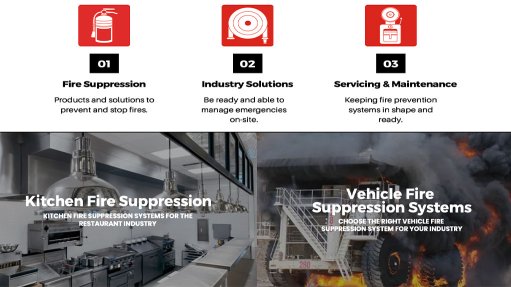Host of new occupations in automotive sector demands skills


Isuzu Motors South Africa president and automotive executive oversight committee skills development workstream chairperson Billy Tom
The demands of digitalisation, electrification, autonomous vehicles, sustainability and changing consumer preferences have given rise to a host of new occupations within the automotive sector, Isuzu Motors South Africa president and automotive executive oversight committee skills development workstream chairperson Billy Tom has said.
“The automotive industry must take deliberate steps to cultivate a culture that values and encourages the pursuit of technical expertise. By doing so, we can secure a pool of skilled individuals who will drive our industry forward even in the face of challenges,” he said on June 26.
He was one of many industry leaders who spoke at a thought leadership roundtable discussion event hosted by naamsa | The Automotive Business Council, in partnership with financial institution Old Mutual, in Johannesburg.
The event was the second instalment in a four-part series of thought leadership roundtable discussions focussed on the industry’s four key strategic areas for the 2023 calendar year.
Discussions revolved around the theme of ‘transformation beyond compliance’ and how all key stakeholders within the automotive sector of South Africa needed to push the transformation agenda, which had become a licence to trade for the automotive industry in the country.
In the realm of digitalisation, Tom revealed that there was increased demand for software engineers, data analysts and cybersecurity professionals, who were responsible for developing and maintaining the complex systems that enabled autonomous driving. Occupations such as autonomous vehicle engineers, simulation specialists and safety analysts have also emerged as key in the rapidly evolving field.
“These individuals play a crucial role in developing and maintaining advanced digital technologies that power connected vehicles, smart factories and data-driven decision-making processes,” he explained.
Additionally, expertise in virtual and augmented reality, machine learning and artificial intelligence were becoming increasingly valuable for automotive companies, he said.
The shift towards electrification has also given rise to specialised occupations, in electric powertrain systems, betting technology and charging infrastructure. Workers with these skills are essential for the design, development and maintenance of electric vehicles (EVs) in the associated components.
Moreover, occupations such as EV technicians and battery engineers have emerged to meet the growing demand for expertise in this field.
Tom noted that sustainability had also become a more pressing concern for the automotive industry, leading to increased demand for workers with expertise in sustainable manufacturing practices, environmental engineering and renewable energy.
“These individuals contribute to the development and implementation of eco-friendly processes and technologies that reduce the industry's carbon footprint. Additionally, skills in green logistics and supply chain management are increasingly valued as companies strive for sustainability throughout the entire value chain,” he said.
In terms of changing consumer preferences, Tom said skills in user experience design, digital marketing and data analytics were increasingly essential for providing a personalised and connected experience for consumers.
“As the demand for connected vehicles, technologies and smart mobility solutions grows, professionals in these areas play a pivotal role in shaping the future of the automotive industry,” he said.
He added that the successful implementation of skills development initiatives in the automotive industry would require a comprehensive and strategic approach.
“Through assessment analysis, we can identify industry demands, emerging technologies and global trends that shape the future of the work. By collaborating with relevant stakeholders, including government bodies, industry associations and educational institutions, we can ensure that our efforts align with market needs and drive industrial growth and development,” Tom said.
He noted that the defining of priority skills was crucial to properly focus the industry’s resources and efforts collectively.
“By identifying priority technical skills through consultation with industry experts, employers, trade unions, we can validate their relevance and ensure that our workforce is equipped with the right competency to meet industry demands,” Tom said.
The general consensus among participants in the roundtable discussions was that enhancing curriculum and training programmes were crucial for equipping learners with the necessary knowledge and skills in the automotive industry.
Additionally, regular reviews and updates will allow the industry to align technical education and training curricula with priority skills. By incorporating emerging technologies, industry best practices and real-world applications, it will become possible to prepare learners for the changing employment landscape within the automotive sector.
“This may include the establishment of training programmes, partnerships with educational institutions, apprenticeship schemes and continuous learning opportunities,” naamsa transformation executive Tshetlhe Litheko agreed.
Tom said integrated work and learning apprenticeship programmes with on-the-job training opportunities would further enhance industry readiness and the development of critical skills. The importance of strengthening the capacity of educators to deliver high-quality technical education and training was also emphasised.
Tom noted that, by providing professional development programmes and resources, as well as fostering partnerships between educational institutions and industry professionals, continuous learning and knowledge sharing within the industry could be facilitated.
Moreover, improving access and equity in technical education and training would play a vital role in creating a diverse and inclusive workforce.
“By ensuring that opportunities are accessible to all individuals, regardless of background or circumstances, we can foster inclusivity and promote a workforce that represents a wide range of perspectives and experiences,” he said.
The event programme also focused on the value of financial inclusion and financial education for previously disadvantaged individuals within the automotive industry.
Discussions were also held around challenges faced by the poor in accessing mobility and transportation services, including limited public transportation options, inadequate infrastructure in under-served areas and the high cost of owning and maintaining vehicles.
Additionally, the support of localised manufacturing capability among small- to medium-sized enterprises (SMEs) was also noted as an area that had to be addressed to ensure meaningful transformation within the industry.
Old Mutual SME director Nobesuthu Ndlovu said “… one of the key enablers of localisation and promoting black manufacturers in the automotive industry is access to finance. As part of collaborative initiatives, large businesses play a critical role in enabling access to finance, including financial education.”
TransUnion Africa CEO Lee Naik highlighted the need for more programmes that provided accessible financing options, community-driven transportation services and innovative partnerships between the public and private sectors.
“It is important to understand the challenges faced by South Africans in accessing mobility and transportation services. Let us dig deeper into financial inclusiveness, innovative financing models such as the two-pot retirement savings annuities system and the significance of public-private partnerships to create viable solutions,” he said.
Article Enquiry
Email Article
Save Article
Feedback
To advertise email advertising@creamermedia.co.za or click here
Press Office
Announcements
What's On
Subscribe to improve your user experience...
Option 1 (equivalent of R125 a month):
Receive a weekly copy of Creamer Media's Engineering News & Mining Weekly magazine
(print copy for those in South Africa and e-magazine for those outside of South Africa)
Receive daily email newsletters
Access to full search results
Access archive of magazine back copies
Access to Projects in Progress
Access to ONE Research Report of your choice in PDF format
Option 2 (equivalent of R375 a month):
All benefits from Option 1
PLUS
Access to Creamer Media's Research Channel Africa for ALL Research Reports, in PDF format, on various industrial and mining sectors
including Electricity; Water; Energy Transition; Hydrogen; Roads, Rail and Ports; Coal; Gold; Platinum; Battery Metals; etc.
Already a subscriber?
Forgotten your password?
Receive weekly copy of Creamer Media's Engineering News & Mining Weekly magazine (print copy for those in South Africa and e-magazine for those outside of South Africa)
➕
Recieve daily email newsletters
➕
Access to full search results
➕
Access archive of magazine back copies
➕
Access to Projects in Progress
➕
Access to ONE Research Report of your choice in PDF format
RESEARCH CHANNEL AFRICA
R4500 (equivalent of R375 a month)
SUBSCRIBEAll benefits from Option 1
➕
Access to Creamer Media's Research Channel Africa for ALL Research Reports on various industrial and mining sectors, in PDF format, including on:
Electricity
➕
Water
➕
Energy Transition
➕
Hydrogen
➕
Roads, Rail and Ports
➕
Coal
➕
Gold
➕
Platinum
➕
Battery Metals
➕
etc.
Receive all benefits from Option 1 or Option 2 delivered to numerous people at your company
➕
Multiple User names and Passwords for simultaneous log-ins
➕
Intranet integration access to all in your organisation


















